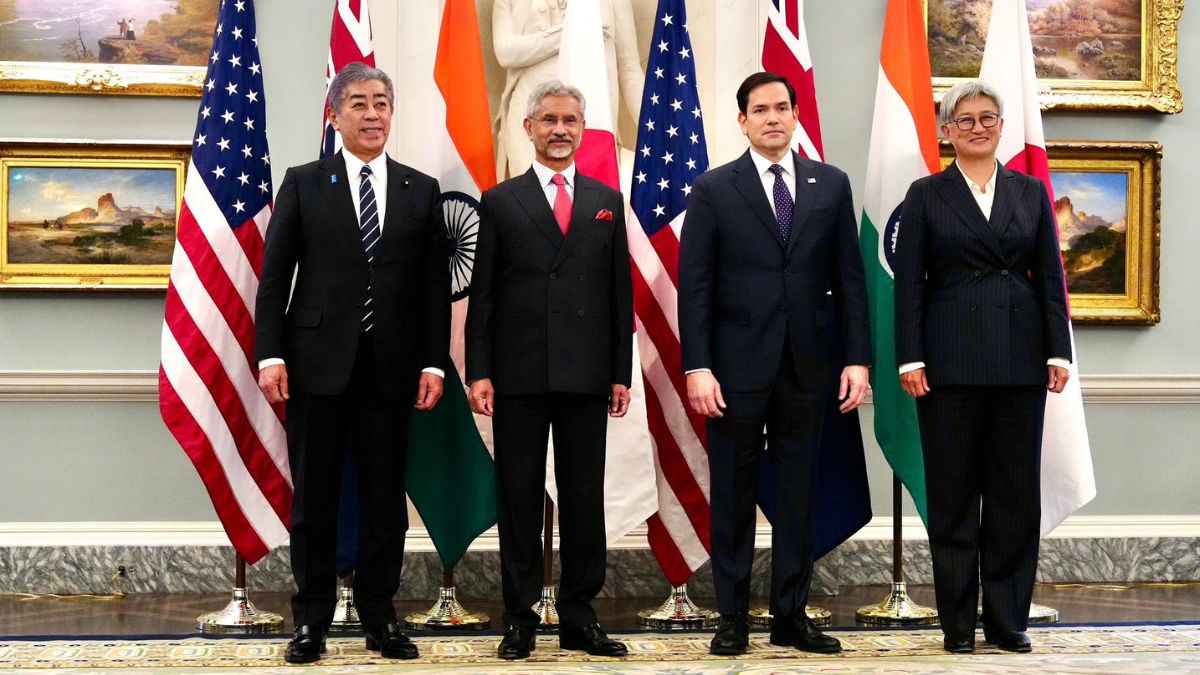Quad Ministerial: A New Dawn for Indo-Pacific Cooperation?
The recent Quad ministerial meeting in Washington D.C. sent shockwaves through the global political landscape. With newly appointed US Secretary of State Marco Rubio and National Security Advisor Mike Waltz at the helm, alongside External Affairs Minister S Jaishankar from India, Penny Wong from Australia, and Japan's Iwaya Takeshi, this meeting wasn't just another diplomatic gathering; it marked a pivotal moment in the trajectory of Indo-Pacific relations. But did this meeting live up to the hype, or did the discussions fall short of expectations?
A Show of Strength: Reaffirming Quad's Commitment
The Quad, comprising Australia, India, Japan, and the United States, is an informal strategic forum aimed at maintaining a free and open Indo-Pacific. This meeting served as a potent demonstration of the Quad's continued commitment to this goal in a world increasingly shaped by geopolitical uncertainties. The meeting took place mere hours after the Trump administration's inauguration, highlighting the group's heightened importance in US foreign policy.
Key Discussion Points
The ministers engaged in wide-ranging discussions focusing on a stable and prosperous Indo-Pacific region. Their agenda covered critical areas impacting security, economic development, and regional stability. These crucial discussions touched upon various points that concern these four key countries and also countries throughout the indo-pacific region.
A Vision for the Future
The participating foreign ministers agreed on the need for a bolder approach—an expansion of the group's agenda and an intensification of collaboration. Their shared vision is to elevate the Quad beyond a strategic dialogue to a more proactive force for global good.
Beyond the Quad: Bilateral Discussions Take Center Stage
In addition to the Quad ministerial, significant bilateral discussions took place, further underscoring the importance of individual partnerships within the broader alliance.
Jaishankar-Rubio Bilateral Meeting
Immediately following the Quad meeting, Secretary of State Rubio held his first bilateral meeting with External Affairs Minister Jaishankar. This extensive hour-long conversation delved into various aspects of the bilateral partnership between the US and India. This also strengthened a friendship of mutual benefit to not just the two countries but the whole of the indo-pacific.
Engagement with the US National Security Advisor
Jaishankar also held a meeting with Mike Waltz, the US National Security Advisor. This interaction reinforced the commitment to a collaborative agenda aimed at enhancing global stability and prosperity, showing the strong importance placed upon both cooperation and strategy.
The Importance of the Indo-Pacific Region
The Indo-Pacific region has emerged as a focal point of global strategic competition. Maintaining peace and stability in this critical area demands collaboration and a unified stance among key players. This meeting highlighted the significance of the Quad as a vital mechanism for addressing multifaceted challenges, from cybersecurity threats to maintaining the stability of sea lanes in the crucial indo-pacific.
Addressing the Challenges Ahead
Maintaining peace and security in the Indo-Pacific presents unique difficulties; it is an exceptionally important part of the world economy. The discussions touched upon threats to the security and economy of this important area and sought innovative collaborative solutions to resolve these multifaceted problems. This cooperation amongst these global powers is essential for success and the stability of the Indo-Pacific.
Takeaways
This Quad ministerial signals a new era of cooperative security, marked by robust multilateral partnerships and collaborative approaches to critical challenges facing the Indo-Pacific and beyond. These collaborations and alliances show great strength, and that collaborative success helps to solidify world security. The discussions reflected an aligned commitment towards shared goals, suggesting stronger Indo-Pacific ties in the future. This enhanced collaboration among global powers sets a promising example and indicates that further cooperation is key to success. The commitment displayed emphasizes the vital role of international collaborations, while the broader focus on regional cooperation underlines a strengthened collective response to shared concerns.




